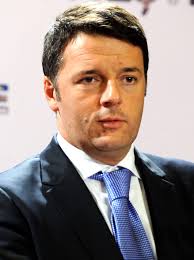Italian Prime Minister Criticizes EU Summit at Bratislava
Italian Prime Minister Matteo Renzi called the informal gathering of leaders of the European Union in Bratislava, Slovakia on September 16 a “wasted opportunity” in an interview with Italian newspaper Corriere della Sera on September 25. The summit, which was scheduled to discuss mounting concerns over the influx of Syrian refugees into Europe, was, in Renzi’s opinion, unproductive. Despite this opinion, he eventually signed the meeting’s final legislation regarding migration caps.

Renzi continued to attack German Prime Minister Angela Merkel’s alleged false sense of optimism, denouncing her hopeful language for a continent that he thinks may soon be the “ghost of Europe.” Conflicting reports by Reuters and Corriere say that Renzi was either excluded from or refused to join a press conference with Merkel and French President Francois Hollande after the conference. Displays of tension between European leaders have been increasingly common as the EU has moved forward post-Brexit. According to European Council president Jean-Claude Juncker, the EU is facing an “existential crisis” without Britain’s funding and structure, and the failed meeting at Bratislava may be a signal of that.
Renzi reiterated Juncker’s evaluation of the state of the EU, saying that he had “hoped for answers to the crisis caused by Brexit, not just to go on a boat trip.” Renzi then further condemned the summit, saying in an interview with Italian newspaper Ansa that Italy will have to “organize itself autonomously on migration” if Europe fails to produce better legislation regarding the refugee crisis.
Renzi’s strong comments against stagnation in the EU without Great Britain’s structural assistance come at an interesting time for the Prime Minister, as in coming months he will face a national referendum concerning changes to the country’s constitution and shrinking the size of the senate. Renzi has promised to step down if the referendum goes against his favor, a promise many do not take take lightly after former British Prime Minister David Cameron’s resignation in July. With the EU facing so many challenges due to the refugee crisis and Brexit, many of Renzi’s critics think that now is not the time for European leaders to use the continent as a playground for national interests.
